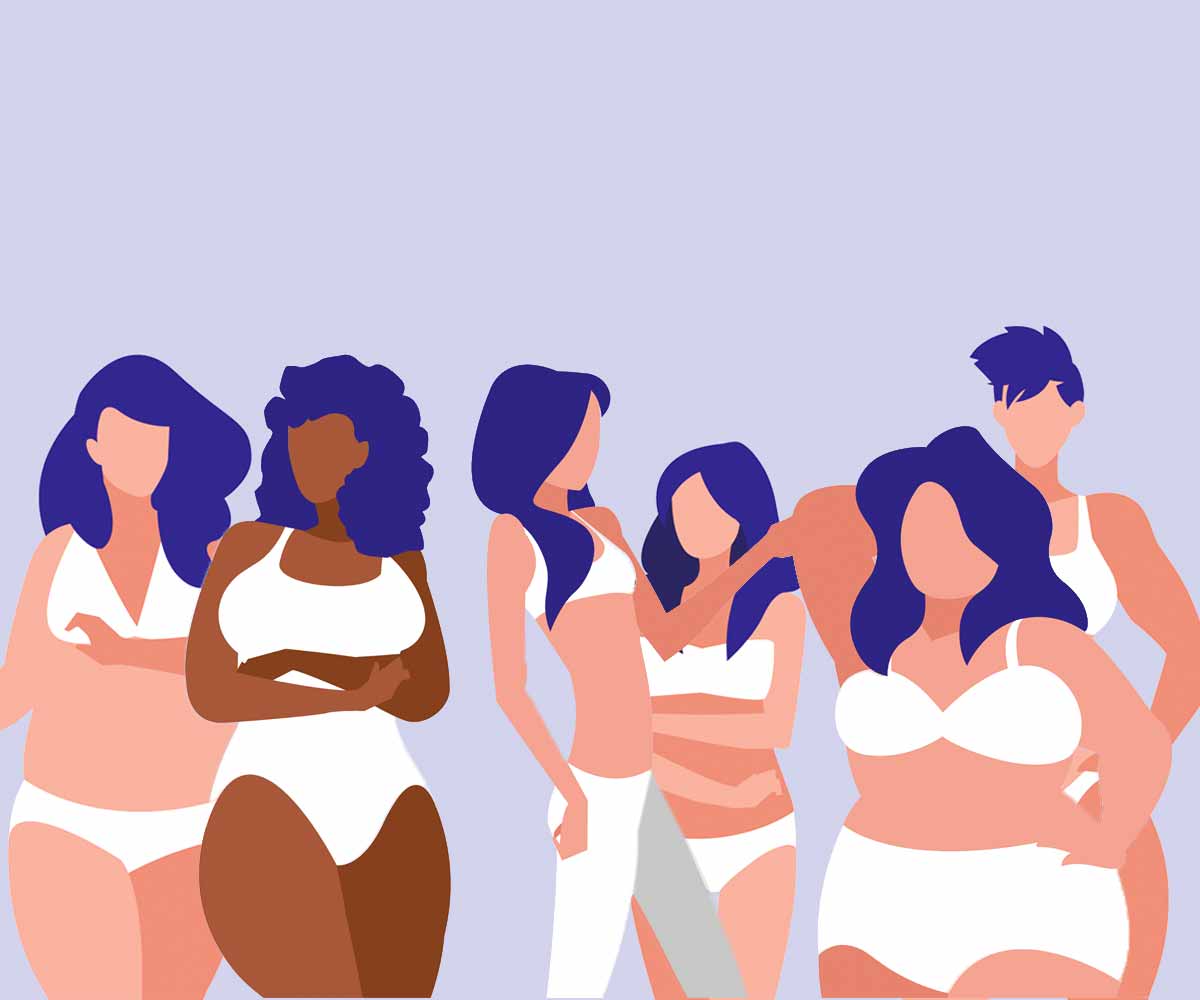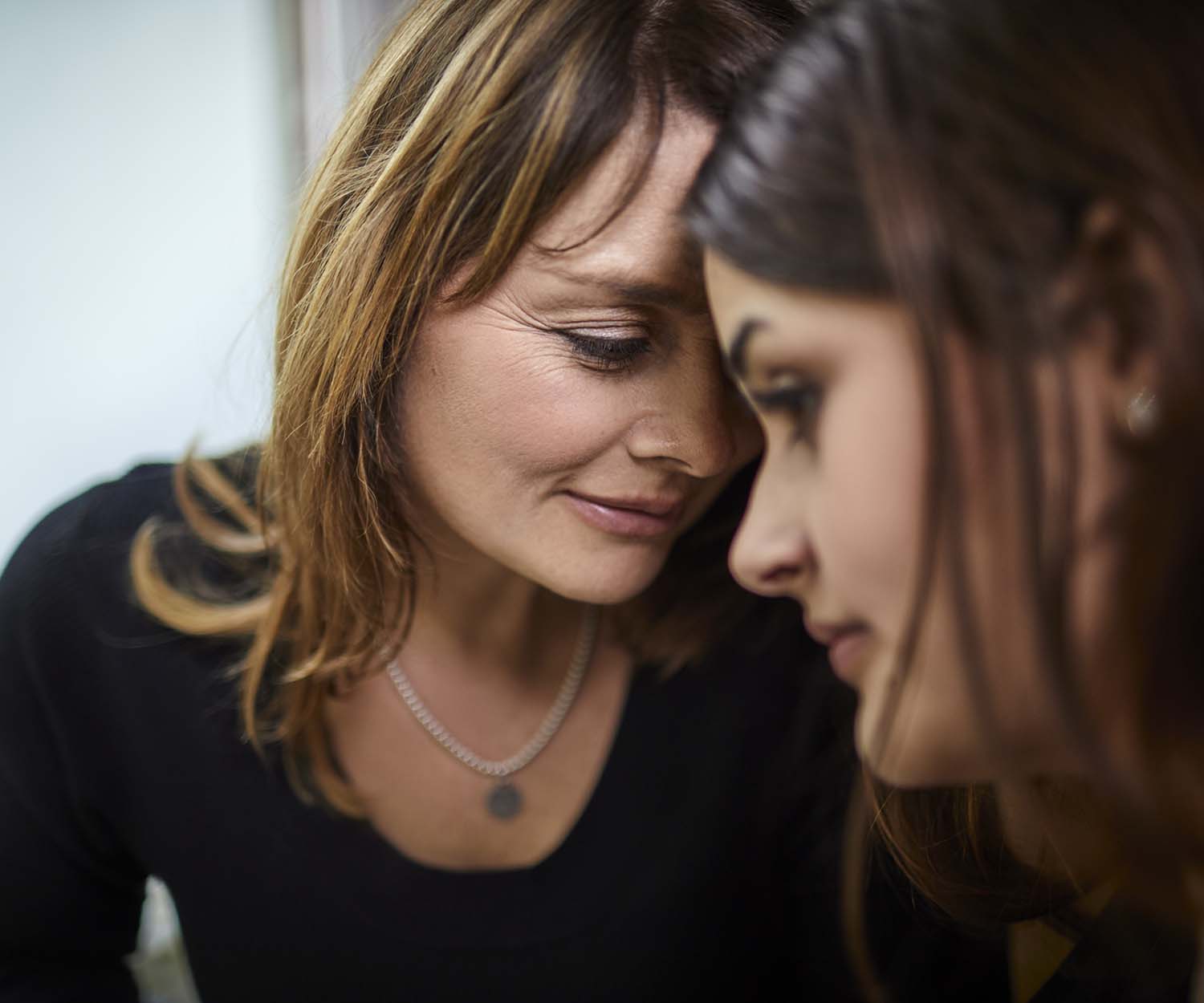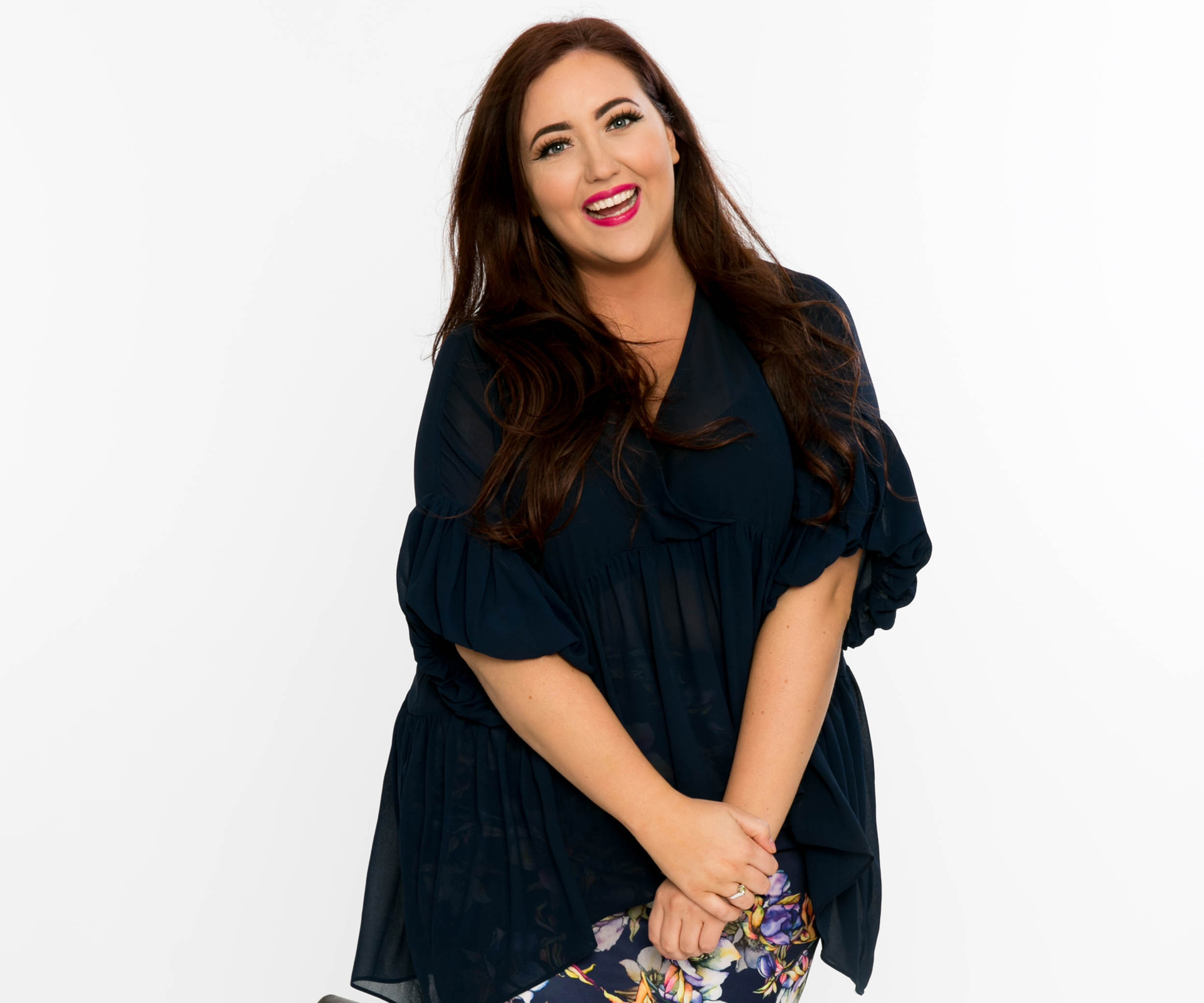Angela Barnett, 49, and Emma Wright, 50, are two Kiwi women who, as young people, spent years feeling miserable about their bodies. They’ve both suffered from eating disorders and they’ve both battled low self-esteem and confidence issues. Now, they lobby to help other young people avoid the paths they went down. Here, they share their journeys.
Angela Barnett
Angela Barnett is often behind the microphone, telling girls that they are perfect just as they are. Through her programme, Pretty Smart, Angela goes into schools around the country and talks to females aged 11 to 13, aiming to boost their self-esteem and body image.

Concerned about the pervasive advertising of the $1.3 trillion beauty industry, Angela sets out to change girls’ negative head talk, and to help them think critically about the messages and images of perfect females bombarding their social media feeds.
Sitting in a Wellington café, Angela says: “I tell them it’s fine to want to feel pretty and beautiful, but it’s important to not be hoodwinked by the industry coming after them. Because they’ll never win. Studies show that if teens are taught how the media and advertising work, they are less affected by it.”
Part of her motivation is that the mother of two has been there, and doesn’t want other young girls going through the struggles she had. In front of huge rooms of students, she shares her own story: that she battled with low self-esteem and started dieting from intermediate age, a disorder that developed into full bulimia by 19.
Now living in Piha, Auckland, with her husband and two children, aged 10 and 12, Angela shows students an album of her childhood photographs – aged nine and living in Waikato, she was well-covered, healthy and happy; at 11, her first boyfriend dumped her for “looking a bit chubby”; at 14, in Hawke’s Bay, she was thin and very aware, and by 19, studying at Victoria University, she looked normal but was throwing up her food.
Thinking differently
Talking to NEXT between school visits, it’s hard to believe that the confident, attractive 49-year-old spent decades feeling miserable about the way she looked.
“The reason why I talk about all this stuff is that I got the message through the media that skinny is beautiful and loveable. Once I lost weight, I also got a lot of attention for being thin. I had lost so much weight. In my juvenile brain, I heard that I was okay because I was skinny.”
From age 19 to 30, Angela would binge eat every few days, and follow it with a bulimic episode. Like Emma, her eating disorder was a secret. She let her friends down, avoiding meals and social occasions.
“I chose to flat with people who were never around. I had long-distance relationships.”
Once she graduated, she worked in advertising agencies like Saatchi and Saatchi, where she was exposed to images of beautiful, thin women which only made her feel worse. She moved in with her partner – now her husband – who suspected her unusual, secretive behaviour was because she was having an affair.
“It took quite a while for me to go, ‘Oh, this is a disorder.’ I feel like my twenties were difficult. I was just surviving,” she says.
Angela finally got over it through counselling and keeping a diary. She joined the dots that each binge eating episode was often triggered by an emotional incident, and often linked to a lack of confidence and self-esteem.
“I needed to shake that emotional crutch. Then I was determined not to turn 30 and still be throwing up food. I cracked it,” she says.
Now behind the microphone, she finds many young girls relate to her story.
“It’s a universal story of not being kind to myself. I didn’t know that I had a voice inside my head and I could change what it said. I could train this voice to think differently.”
While Angela attributes her lack of self-esteem to the pervasive images of thin models she saw in the media, she argues there is even more pressure on young girls today, as images of ideal bodies are swamping social media feeds. With more than 50 per cent of girls at intermediate age owning a smartphone, they are constantly bombarded with images and beauty ideals through their device.
“Once you have a smartphone you have access to everything. From intermediate age, girls are told to look hotter, sexier and older. Then they reach about 28 and they’re told to look hotter, sexier, and younger.”
Raising warriors
When she is not talking to classrooms of girls, Angela works as a freelance journalist and part-time in the YWCA’s campaign team, which helps fund her Pretty Smart progamme along with Oi Girl (in association with the organic pad and tampon brand).
“I try to give girls the skills and knowledge to show them they can manage what they see and hear, and it’s so important that they do. A big study in the US has just shown that if you’re having a day when you’re a bit vulnerable, following beauty influencers and celebrities can cause your self-esteem to slump after just 20 minutes.”
Her next goal is to try and get a Pretty Smart programme available in intermediate and secondary schools. In the meantime, Angela’s parting mantra is: “Let’s raise a generation of warriors, not worriers.”
Emma Wright, 50

Emma Wright spent 25 years obsessing about food. Over that long period, she had bouts of binge eating and struggled with bulimia. From the time she woke up until the time she went to bed, Emma thought about what she was going to eat, and obsessed about calories.
Her body battle started when she hit puberty at the age of 14, only ending when she turned 40, when she realised the impact her disorder was having on her body and her life.
Emma speaks about her personal journey from the living room of her home in Arrowtown, Central Otago. Today, she is a healthy, attractive 50-year-old mother of two children, aged eight and 10, who shows no signs of her former, secretive habit.
She uses her experience, though, to go around schools and educate parents about raising body confident children. Part of her mission is to encourage parents not to be sucked into the messages pervaded in the media that ‘fat equals bad’, nor to pass those on to their children.
Emma says she talks predominantly in primary schools, and parents ask her questions like: “My child has been bullied for a fat tummy. How do I deal with that?” She looks frustrated, as she shakes her head.
“Messages about our cultural dislike of fatness start young,” explains Emma. “Let’s not tell children that they have failed if they put on weight.
“I think our cultural dislike of fatness has worsened since I was young because of all the attention on the ‘obesity epidemic’. There has been a focus on how being obese is the fault of those people and I think that is really damaging.”
Her current obsession with changing the way we think and talk about our bodies stems back to when Emma caught her daughter, now 10, dipping into the biscuit tin. “I walked into the kitchen and my six-year-old had this look of guilt and fear and shame. It stopped me in my tracks. I just thought: I’m not going to let the next generation in my family go down the same route.”
Emma realised she was repeating some of the numerous beauty ideals she had heard from her own mother. Growing up in Wellington, she was one of three children. Her mother and other women she knew raved that being thin was good, and anyone who lost weight ‘looked healthy’.

Opening up
When Emma struck puberty, she put on weight. “When I put on this weight really quickly, I lost being the thing that was beautiful and attractive. I was letting my family down. The narrative that overweight is unhealthy and unattractive is deeply entrenched in our culture.”
Emma’s long cycle of binge eating and being bulimic began when she turned 14. In her thirties, even though her bingeing was not so excessive, she still obsessed about food to the point that she struggled with relationships. She didn’t meet her husband until she was 39.
“My head was so full of what I was going to eat and my body that I didn’t have much room for anything else.”
The turning point was when Emma became aware that she might be passing on her distorted views of body image to her children. As a parent, she had limited her kids’ sugar intake, and found that food battles dominated their mealtimes.
She then began her own research into the culture around body image. She wrote and self-published two books about her journey, an experience that was both liberating and cathartic.
“It had gone from a private shame to something I openly talked about. I learned that eating was something I could do without me thinking about it.”
A year and a half ago, Emma was asked to run a workshop for a few parents in her children’s school. That snowballed into a whole school workshop, and since then, she has been called into schools elsewhere around New Zealand to share her tips and ideas. Through her business, she also has a blog, online resources, and a recently self-published workbook for parents on how to raise body confident kids.
Emma talks to NEXT in the middle of the afternoon. In the past, she would have been worried about her next meal. “Now I’ve got one of the easiest relationships around food. I just totally trust my body and I don’t have any anxiety around what I eat.”
Emma’s tips for raising body confident kids
1. Compliment the person, not their body. “So lovely to see you” is about the person, “You’re so gorgeous” is about their body.
2. Start a nightly gratitude routine with your kids so they fall asleep noticing what their body does for them, rather than what it
looks like.
3. Become aware of how bigger bodies are stereotyped in media (the ugly, lazy or greedy one) and talk to your kids about how this stereotype is untrue and harms everyone.
4. Show kids how videos and photographs are edited so they understand that what they’re looking at does not represent reality.


